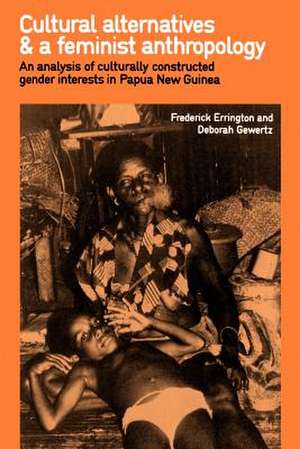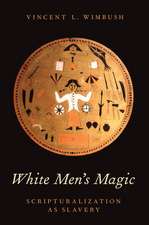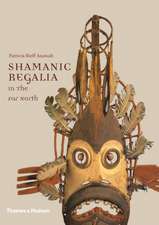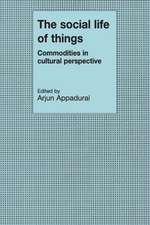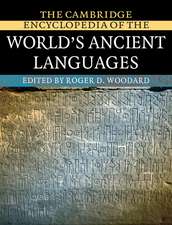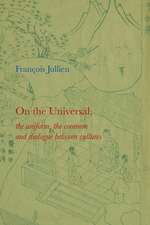Cultural Alternatives and a Feminist Anthropology: An Analysis of Culturally Constructed Gender Interests in Papua New Guinea
Autor Frederick Errington, Deborah Gewertzen Limba Engleză Paperback – 11 oct 1989
Preț: 281.88 lei
Nou
Puncte Express: 423
Preț estimativ în valută:
53.95€ • 58.63$ • 45.35£
53.95€ • 58.63$ • 45.35£
Carte tipărită la comandă
Livrare economică 21 aprilie-05 mai
Preluare comenzi: 021 569.72.76
Specificații
ISBN-13: 9780521375917
ISBN-10: 0521375916
Pagini: 200
Ilustrații: 1
Dimensiuni: 152 x 228 x 15 mm
Greutate: 0.31 kg
Ediția:Reprint
Editura: Cambridge University Press
Colecția Cambridge University Press
Locul publicării:Cambridge, United Kingdom
ISBN-10: 0521375916
Pagini: 200
Ilustrații: 1
Dimensiuni: 152 x 228 x 15 mm
Greutate: 0.31 kg
Ediția:Reprint
Editura: Cambridge University Press
Colecția Cambridge University Press
Locul publicării:Cambridge, United Kingdom
Cuprins
List of illustrations; Acknowledgements; Part I. Cultural Premises: 1. Entropy and the nature of indebtedness; 2. Names and personal identity; 3. The enactment of power; 4. The construction of society; Part II. Social Action: 5. Politics and the relationship between husbands and wives; 6. The mutual dependence of brothers and sisters; 7. Marriage and the confluence of interests; 8. The monetization of social relationships; Conclusion: the significance of cultural alternatives; Notes; References; Index.
Recenzii
'This complex, brilliant work succeeds in breaking out of that ethnographic straitjacket by remaining inconclusive and perplexed in what it reveals: as much an image of American intellectual quandaries as Chambri ones, and neither in isolation.' The Times Higher Education Supplement
